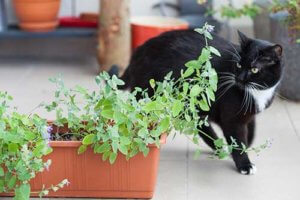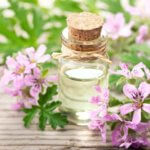Curiosity Killed the Cat (and other pets)
 There is danger throughout your home. Curious pets naturally investigate, and they often find trouble. Below is a guide for keeping your home safe for your pet.
There is danger throughout your home. Curious pets naturally investigate, and they often find trouble. Below is a guide for keeping your home safe for your pet.
Clean it up
The kitchen, where many families spend most of their time, contains numerous cleaners and chemicals. Keep glass cleaner, bleach, ammonia, oven cleaner, drain openers, and disinfectants safely stored out of a pet’s reach.
Take the garbage out
Do not give your pet chicken, pork or rib bones which splinter and easily lacerate the digestive tract. These fragile bones may also get stuck in the stomach or intestines. For crafty explorers, consider a safety lock on cabinet door where cleaners or garbage is housed.
Party time !
Chocolate is toxic to your pet. Chocolate contains theobromine, a stimulant which can cause a fast heart rate, cardiac arrhythmias, and even seizures. Sweets, cakes, cookies and other delights can upset a pet’s tummy resulting in diarrhea and/or vomiting.
Shocks and Burns
Electrical wires and cords are attractive chew things for teething puppies and mischievous kittens. Keep cords out of reach, use decorative covers or deterrent sprays to prevent fire or electrocution.
Green thumb ?
 Many plants are toxic if ingested or even licked a little. Some common examples include lilies, philodendron, dieffenbachia, elephant ear, eucalyptus, spider plant, azalea, ivy, amaryllis, African violet, begonia, geranium, oleander, boxwood, Jerusalem cherry, holly, poinsettia and mistletoe. A complete list of toxic plants may be found on the ASPCA website, www.ASPCA.org.
Many plants are toxic if ingested or even licked a little. Some common examples include lilies, philodendron, dieffenbachia, elephant ear, eucalyptus, spider plant, azalea, ivy, amaryllis, African violet, begonia, geranium, oleander, boxwood, Jerusalem cherry, holly, poinsettia and mistletoe. A complete list of toxic plants may be found on the ASPCA website, www.ASPCA.org.
The medicine cabinet
Tylenol, aspirin, other pain relievers, antihistamines, sleeping pills, and prescription medications are deadly substances. Keep all medications and supplements out of pet’s reach. Other concerns in the bathroom include depilatories, razors, toothpaste, sunscreen, hair products and cosmetics.
What’s lurking in the garage?
Antifreeze smells and tastes sweet. Naturally, pets’ curiosity gets the best of them. Store antifreeze in a safe location, tightly sealed. Thoroughly clean up drips or spills after use. A safe alternative is Sierra, a non-toxic antifreeze. Rat poisons are colorful treats to pets. This deadly toxin is designed to taste good. How can anyone resist? The very safest option is not to keep rat poison in or around your home or garage.
Don’t underestimate your pet
He or she will likely try anything including investigating fans, coffee pots, hot irons, rubber bands, plastic bags, pantyhose, balloons, sewing needles, string, mobile phones, chargers and remote controls. The consequences are countless including burns, suffocation, and intestinal obstruction.
Animal Poison Control 1-800-548-2423 is staffed by veterinary toxicologists and available 24/7.
Remember, what goes in must come out. Sometimes, via surgery.
Mia K. Frezzo, DVM




